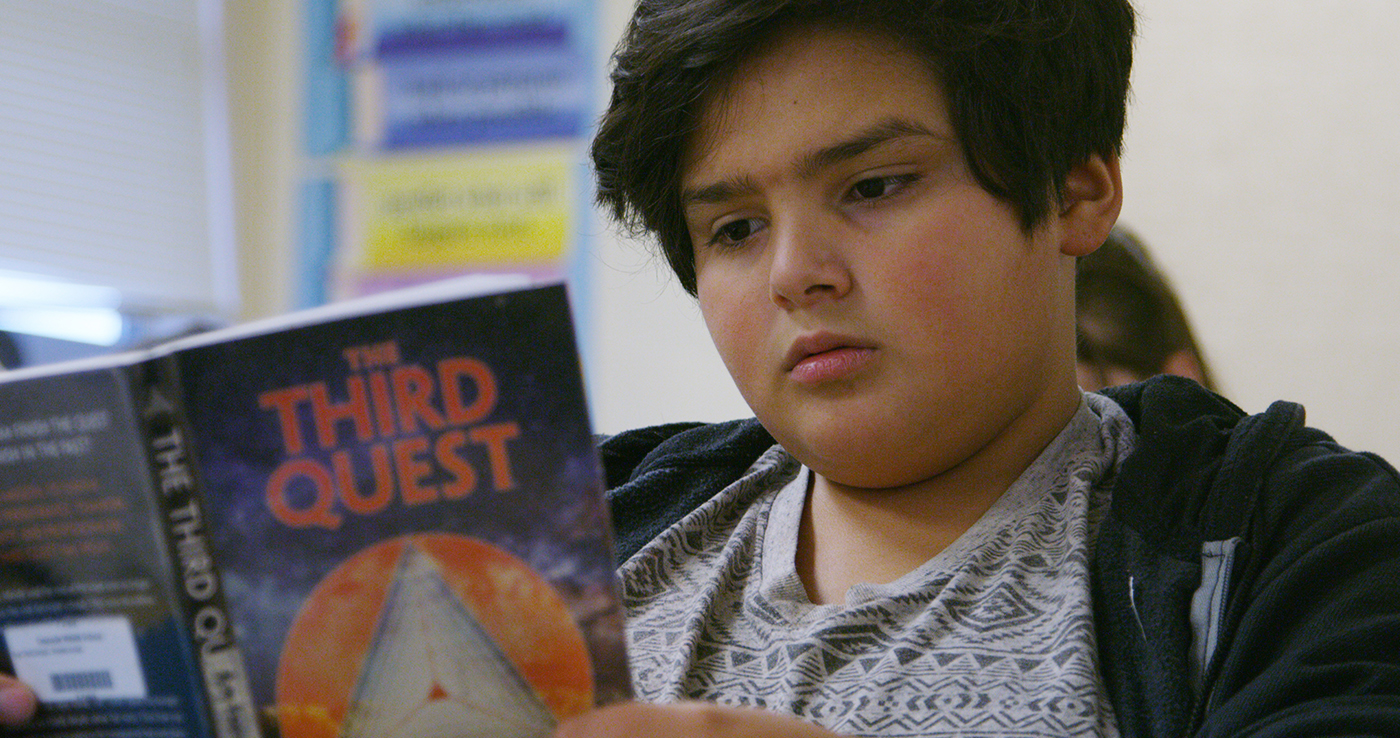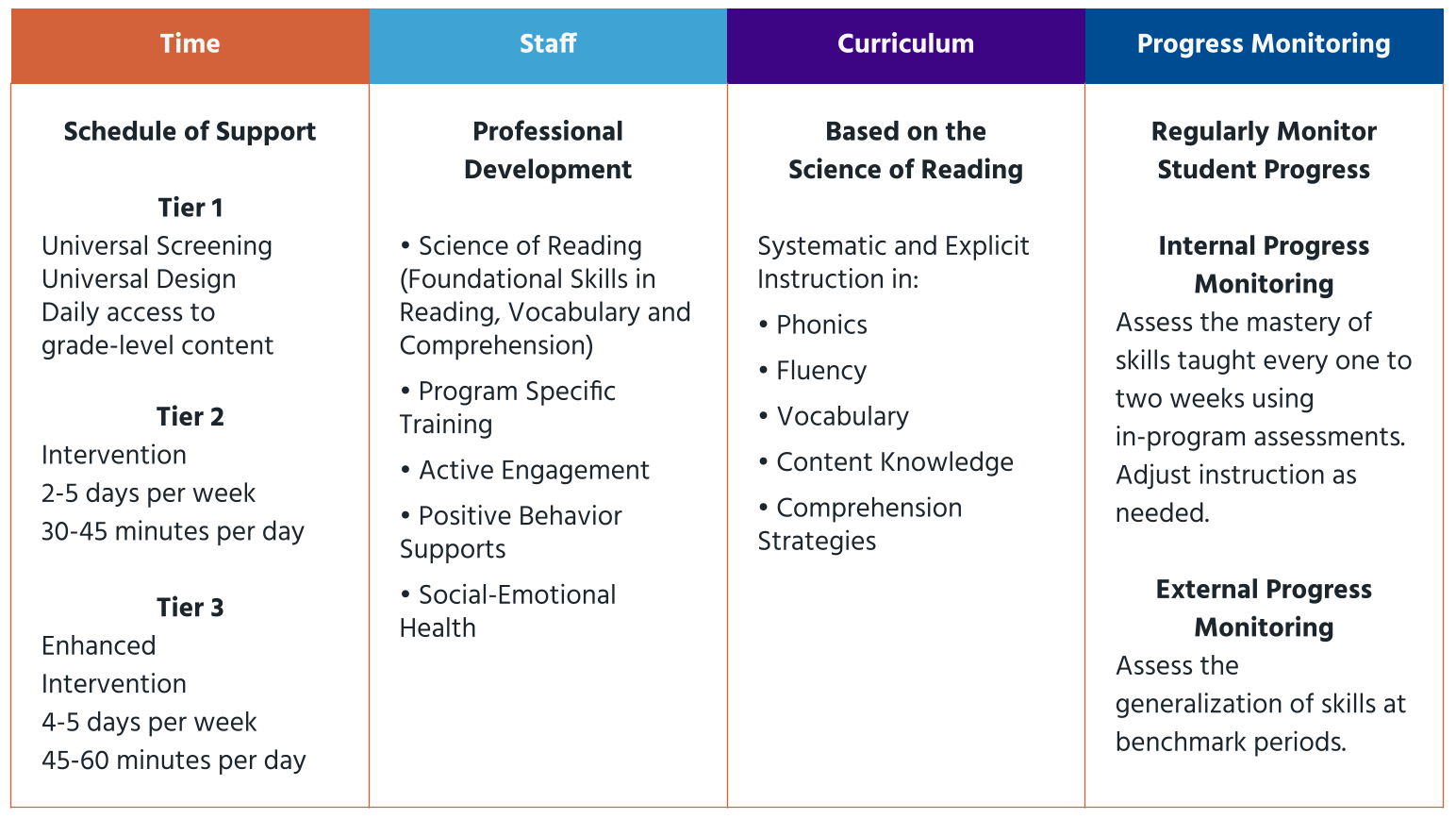
Blog Post
Multi-Tiered Systems of Support and Older Students

Tiered Reading Support (Grades 5 through 12)
With disruptions caused by COVID-19, the importance of following the Science of Reading has gained the attention of parents, state legislatures, and the press. Even as we work on making our primary reading programs more robust, we have many older students who, through no fault of their own, have failed to master the basics of reading.
In 2022, the National Assessment of Educational Progress (NAEP) found that 37% of fourth grade students and 30% of eighth grade students scored below basic in reading. The need for effective reading interventions for older students is both alarming and compelling. Moving Multi-Tiered Systems of Support (MTSS) into fifth grade through high school can give our discouraged and disenfranchised older students untold future options in school and work.
“Try harder” is not a motivational strategy. Twitter proficiency is inadequate.
When “try harder” doesn’t work and Twitter proficiency is inadequate, MTSS in the upper elementary grades, middle school, and into high school can provide effective school-based solutions.
MTSS for Older Students: 4 Variables to Success at Tiers 2 and 3
The chart below provides guidance in setting up an MTSS process that provides palpable results for older students who struggle to read well.

Space
Steps to Setting up an MTSS Process for Older Students
Step 1. Use universal screening and scheduling.
Select students who read below grade level for intervention at Tiers 2 and 3. Establish intervention schedules and policies that provide adequate instructional time for mastery in essential reading skills. For high school students, schedules should not cause students to miss out on credit accumulation.
Step 2. For students at Tiers 2 and 3, provide small group instruction and one-on-one tutoring.
A recent meta-analysis found small group and one-to-one tutoring to be “one of the most versatile and potentially transformative educational tools in use today” (Nickow, Oreopoulos, and Quan, 2020).
Step 3. Employ intervention programs based on the Science of Reading.
Teachers need instructional tools which are meticulously designed to be systematic and explicit.
“Even the most competent teacher cannot be successful in teaching reading, especially to children who are at-risk or struggling with literacy, if provided with inadequate instructional contexts or inappropriate instructional materials and approaches” (Spear-Swerling, 2019).
Step 4. Provide professional development.
Well-trained teachers and paraprofessionals are at the core of an effective intervention. The instructor’s ability to pace a well-designed program, teach diagnostically, connect with students, and employ positive behavior supports is dependent on their skills, knowledge, and training. A well-designed program of professional development can increase the effectiveness of the intervention.
Step 5. Provide regular internal progress monitoring to ensure student mastery and application of skills taught.
Effective programs provide ongoing progress monitoring so teachers can adjust instruction and practice based on the needs of their learners. Regular internal progress monitoring provides teachers with the ability to monitor each student’s response to intervention and to teach diagnostically.
Step 6. Provide norm-referenced testing at benchmark periods.
Norm-referenced testing at benchmark periods allows educators the ability to determine whether the rate of growth is appropriate.
With the right variables in place, our striving older students can become readers. When it happens, they tell us, “It’s the best feeling ever.”
Interested in Training for The Third Quest?
The Third Quest is a comprehensive reading intervention for middle and high school students who have reading difficulties. CORE works with districts and schools that have adopted The Third Quest to provide training and job-embedded professional learning. We are offering a virtual training this fall, September 26–27. Visit CORE Learning + The Third Quest to learn more and register.





